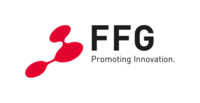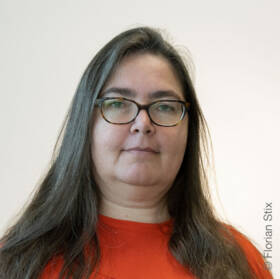Development of New Concepts for Ensuring Local Supply in Rural Areas.
Background
Well-connected areas in and around major city centres have attracted many businesses, leading to a concentration that has been detrimental to local suppliers in many smaller communities of Austria. As a result, people living in rural areas who do not own or have access to a vehicle face significant difficulties in purchasing goods for daily needs and accessing various services. This does not only impact the quality of life but also exacerbates the situation further by undermining purchasing power, reducing the attractiveness of the affected regions as business locations, and making the resettlement of businesses unlikely.
Project Content and Goals
DailyDaisy develops concepts and business models aimed at securing sustainable local supply in rural areas. We envision long-term solutions that are not only economically viable but also meet high ecological and social standards. To accomplish this, we seek cooperation with companies and service providers in the trade and logistics sectors, as well as with public administration and regional management.
The project contributes to the following sustainability goals:
- Introducing sustainable mobility concepts that measure up to the current quality of supply in the region.
- Reducing individual trips with motorized vehicles and switching to emission-free delivery of goods as far as possible.
- Minimizing energy and land consumption in freight transport, e.g., by bundling trips and offers.
- Strengthening local and regional suppliers.
Innovation and Added Value
Previous projects dealing with the supply of goods for daily needs in rural areas often only shed light on single aspects such as specific regions or product groups. By contrast, in this project we adopt a more holistic view and bring together ‘Spatial Allocation’, ‘Sociodemographic Factors’, and ‘Local Supply Concepts’ in a three-dimensional matrix – the “Cube”. The Cube functions as a decision-making tool for developing sustainable supply concepts that consider various factors, including spatial structure and sociodemographic characteristics. It also makes it possible to explore the ways in which the combination of different services affects social aspects, traffic, and economic value creation. We test organizational and technological innovations for their usefulness and create scenarios in which climate-neutral logistics chains integrate with existing services. To gain a comprehensive understanding of needs and existing possibilities, we foster close cooperation between science, administration, and business in the project.
Result
The project lays the foundations for sustainable and barrier-free local supply in rural areas by working out alternatives to the current supply-chains. We also provide a simple planning tool (the Cube) to help identify solutions that are tailored to the needs of different regions. Together, these efforts pave the way for pilot projects aimed at tackling the challenges associated with building sustainable supply structures.
Funding
The FFG is the central national funding organization and strengthens Austria's innovative capacity. This project is funded by the FFG.
You want to know more? Feel free to ask!
Department of Rail Technology and Mobility
- Universität Innsbruck, Institut für Infrastruktur (lead)
- Amt der Tiroler Landesregierung
- Johannes Pöcklhofer
- MPREIS Warenvertriebs GmbH
- NÖ Dorf- und Stadterneuerung GmbH
- Regionalmanagement Innsbruck Land



